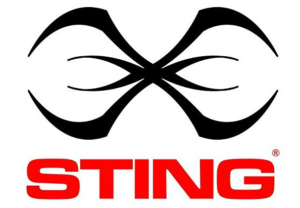
Those with suspected concussion urged to ‘sit it out’ for at least 24 hours under new guidance
April 28, 2023 | by Matt Halfpenny
Participants in boxing and other grassroots sports will be better protected from the potentially devastating effects of head injuries and concussion following the introduction of new official guidelines advising: ‘if in doubt, sit them out’.
The first UK-wide Concussion Guidelines for Grassroots Sport has been published today by the Government and the Sport and Recreation Alliance, helping partcipants, coaches, parents, schools, National Governing Bodies and sports administrators to identify, manage and prevent the issue.
Developed by an expert panel of domestic and international clinicians and academics in neurology and sports medicine, they set out steps to improve understanding and awareness of the prevention and treatment of concussion in grassroots sport where trained medical professionals are less likely to be routinely present.
It is targeted at people of all ages.‘If in doubt, sit them out’ is the strapline, making clear no-one should return to sport within 24 hours of a suspected concussion and builds on guidance already introduced in Scotland.Participants, parents, coaches, teachers and administrators are now asked to read the guidance and familiarise themselves with the necessary steps to:
- RECOGNISE the signs of concussion;
- REMOVE anyone suspected of being concussed immediately and;
- RETURN safely to daily activity, education/work and, ultimately, sport.
The guidelines include a recommendation to call NHS 111 within 24 hours of a potential concussion, to rest and sleep as much as needed for the first 24 to 48 hours and avoid using devices which involve screen time.
In addition, a graduated return to activity such as work, education and sport is advised to reduce the risks of slow recovery, further brain injury and longer-term problems. Individuals should be assessed by an appropriate healthcare professional if symptoms persist for more than four weeks.
“Sport keeps us healthy and active and is a great way to meet people and get involved in the community,” said Culture Secretary Lucy Frazer.
“Most people take part without doing any serious damage to their body but major injuries to the head can and do happen.
“Research has shown the importance of fast and effective tailored treatment and we are issuing expert guidance to help people spot and treat head injuries.
“Whether used in a local leisure centre during a swimming lesson or on a village green during a cricket match, the guidance will make a real difference to people’s lives.”
The move meets a commitment set out in the Government’s Action Plan on Concussion in 2021 to introduce a national approach to prevent concussion and brain injury in sport, and to do so through a combination of improved research and new technologies.
It follows increasing focus on the long-term negative health effects from brain injury and concussion sustained while playing sport.
This is linked to advances in training, coaching, equipment and technology which have led to stronger, faster and better-trained players at all levels.
Development of the guidelines has been led by the Sport and Recreation Alliance, Professor James Calder, chair of the expert drafting group, and Laurence Geller, the Government’s Adviser on Concussion in Sport.
The expert drafting group drew upon existing field research, with the aim of producing a consistent and preventative approach across all sports in England, Scotland, Wales and Northern Ireland.
It builds upon the world-leading work conducted in Scotland which was the first nation in the world to produce guidelines covering all types and levels of sport. Its guidance was updated in March 2021.
Lisa Wainwright MBE, CEO, Sport and Recreation Alliance said: “Concussion is a serious issue and we must always strive to make sport as safe as possible for all those who take part at a grassroots level in clubs, schools and many other settings every week across the UK.
“The Sport and Recreation Alliance is pleased to have supported the development of these guidelines which will ensure there is a consistent, evidence-based approach to concussion in sport across all four home nations.
“When it comes to concussion, the message is clear: if in doubt, sit them out.”












